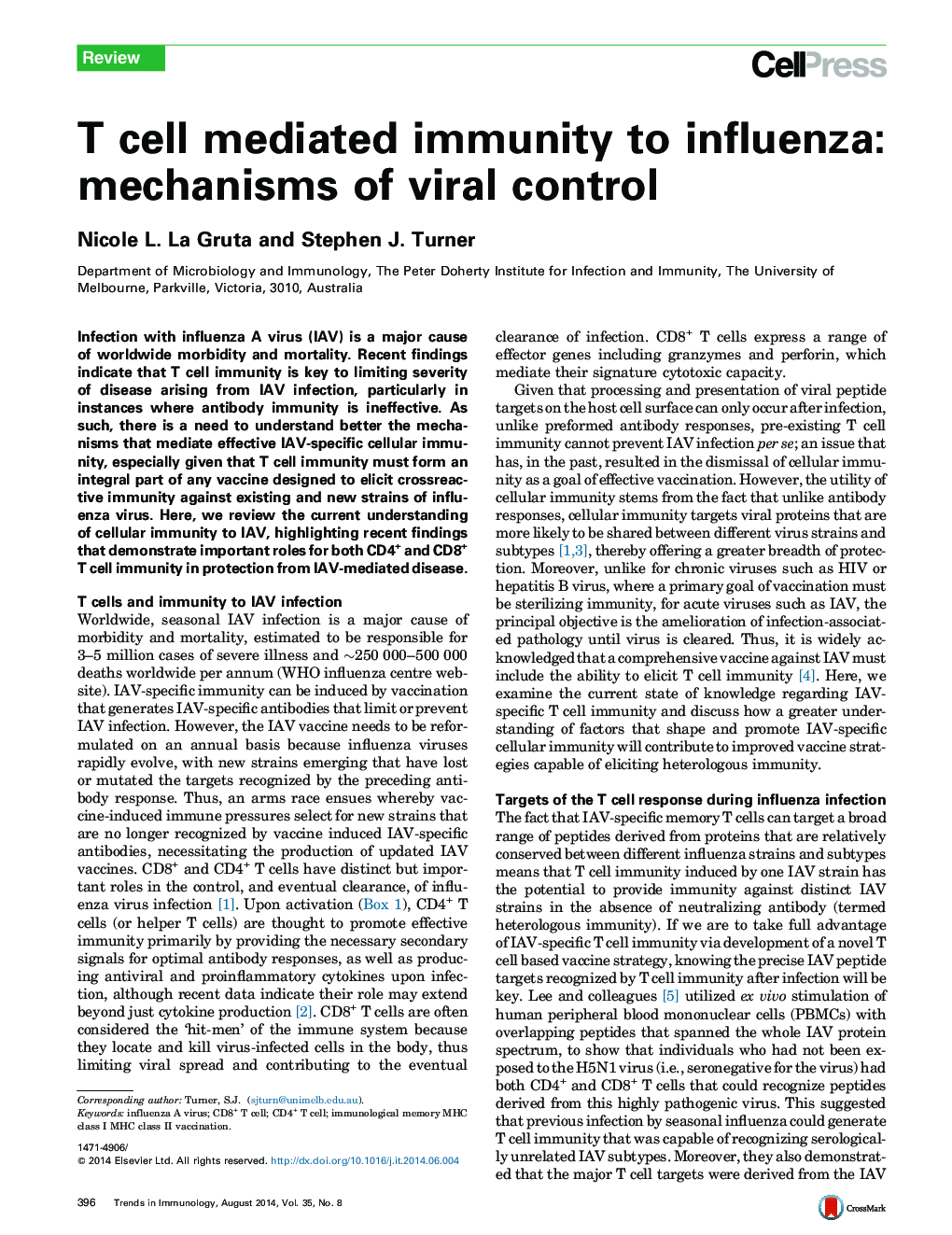| Article ID | Journal | Published Year | Pages | File Type |
|---|---|---|---|---|
| 4359850 | Trends in Immunology | 2014 | 7 Pages |
•CD4+ and CD8+ T cell immunity limits severity and transmission of influenza infection.•The role of CD4+ T cell immunity in the direct control of IAV is underappreciated.•Viral escape at IAV-specific T cell targets may compromise protective immunity.•IAV vaccine strategies should engage T cell immunity to provide broad reactive immunity.
Infection with influenza A virus (IAV) is a major cause of worldwide morbidity and mortality. Recent findings indicate that T cell immunity is key to limiting severity of disease arising from IAV infection, particularly in instances where antibody immunity is ineffective. As such, there is a need to understand better the mechanisms that mediate effective IAV-specific cellular immunity, especially given that T cell immunity must form an integral part of any vaccine designed to elicit crossreactive immunity against existing and new strains of influenza virus. Here, we review the current understanding of cellular immunity to IAV, highlighting recent findings that demonstrate important roles for both CD4+ and CD8+ T cell immunity in protection from IAV-mediated disease.
